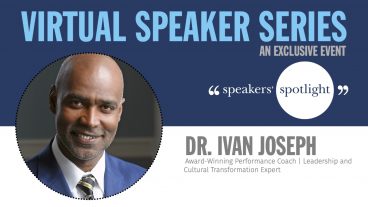The hard truth in many workplaces is that leaders struggle to create a diverse and inclusive environment. The result? Low engagement, high turnover, decreased innovation, and the list goes on. The solution? Learning how to leverage authenticity in how you live, lead, and work.
If being an authentic leader was important before the pandemic, leadership expert Ritu Bhasin says it’s even more important now as we face the fallout of the last few years. We’re seeing heightened mental health challenges, a lack of divide between personal and professional lives, disconnection between teams as we adjust to hybrid work, and more. It’s a difficult time to be both a leader and an employee, she added.
Ritu has worked with hundreds of renowned organizations across industries as the CEO of bhasin consulting inc., a preeminent leadership and inclusion consulting firm. She is a passionate advocate for authentic leadership, allyship, and psychological safety, and shows leaders how to embrace authenticity in the workplace to unlock belonging in their organizations for transformational results.
What is “Belonging” in the Workplace?
While equity, diversity, and inclusion (EDI) has long been one of our most requested keynote topics, belonging is quickly becoming a key component in conversations around EDI strategy and building inclusive workplace cultures.
Authenticity and belonging go hand in hand, Ritu says. Belonging is the feeling of being accepted for who we are, while authenticity is the practice of outing who we are as much as possible. The safer we feel to reveal our authentic selves, Ritu says, the more we’ll feel that we belong in that space. You can’t have one without the other.
In the workplace, this is only possible, Ritu says, when leaders embrace an authentic leadership style in which they themselves consistently choose to be who they are as much as possible in order to encourage others to do the same. This is what belonging in the workplace looks like, Ritu says, and the foundation of any successful EDI strategy.
What Does Authentic Leadership Look Like?
At its core, authentic leadership is about a leader knowing who they are, embracing who they are, and being who they are vulnerably, as much as possible, Ritu says. When a leader is able to do this, it empowers their teams to do the same because it breaks down that fear of judgment and bias that so often holds us back.
As a result, this builds psychological safety and trust in the workplace — something employees are craving post-pandemic — which leads to increased innovation, productivity, and, most importantly, retention. This is the effect authentic leadership has in a workplace.
Having coached over 1000 people using her framework for authentic leadership, Ritu knows this is no small task. What I hear most often from senior leaders, c-suite leaders, CEOs, etc., Ritu says, is “I struggle to be authentic at work because I fear judgment.” Leaders aren’t immune from a fear of being judged or from bias, and they need that sense of belonging as much as their employees do.
Ritu’s innovative Three Selves Framework shows leaders how to break through that authenticity barrier they’re experiencing and help others do the same.
The Three Selves Framework: How to Be the Authentic Leader Your Workplace Needs
Ritu developed her framework in response to performative workplace culture — a culture that touts “be who you are” but in reality encourages the exact opposite, i.e., conformity. This mixed messaging, Ritu says, is confusing and anti-belonging.
The Three Selves Framework provides a model for better understanding how to be more authentic in how you live, work and lead by exploring your Authentic Self, Adaptive Self and Performing Self. Ritu walked us through what each of these “selves” look like and how they manifest in a workplace.
The Performing Self
On one side of the spectrum, you have your performing self. This is the self you front when you feel like you have no choice but to change who you are for the environment you’re in. You’re basically an actor on a stage, Ritu says. You feel pressure to change and behave in ways you don’t necessarily want to, putting you in the zone of disempowerment. You know when you’re performing because your body tells you by getting anxious or upset, she added.
The Authentic Self
On the other side of the spectrum is our authentic self. If there were no negative consequences for our behaviour, Ritu says, this is how we would show up always — it’s the good, the bad, and the ugly. This feels the best because it is our core self, and we should all be aiming to be in a place where we can reveal our true selves as much as possible.
The Adapted Self
The adapted self is where the magic lives, Ritu says. It means we’re learning how to be more authentic, but also understand that we can’t necessarily be our authentic selves 100% of the time. Adapting doesn’t mean we’re performing, Ritu says, instead we’re willingly choosing to adjust or adapt our behaviour to meet our own needs and those of others. It’s still a manifestation of our authenticity and we know this because it feels good. The longer you stay here, Ritu added, the more you’ll realize that you are your authentic self more often than you aren’t.
An authentic leader thrives in the adapted self, Ritu says. There is privilege that comes with being a leader, she continues, and you have to make sure that you aren’t taking up too much space. If leaders push their authenticity too much, they can end up quieting others instead of leaving them room to grow. Adapting allows others’ authenticity to shine, and this is the ultimate goal of an authentic leader — fostering an environment where you can all thrive.
I’ve had to learn this myself, Ritu says. I’m a direct communicator and this directness can be off putting to others. So I’ve learned to be more adaptive when communicating so it meets my needs and the needs of my team members.
What’s important for leaders to remember, Ritu says, is that authenticity is contagious. When you lead with authenticity, your teams respond with authenticity and they are more likely to say that they enjoy working with you, that they trust you, that they feel engaged and satisfied, and that they have greater feelings of workplace well-being and meaning.
And of course, Ritu continues, all of this will cause your team to be more productive, feel more included, and, most importantly, stay at your organization. In the age of the great resignation and quiet quitting, authentic leadership is your antidote.
An internationally recognized expert in leadership, workplace culture, inclusion, and belonging, Ritu Bhasin’s thought-provoking and actionable keynotes provide leaders with the key to workplace success in a world of ambiguity.
Contact us to learn more about Ritu and to book her for your next event.




